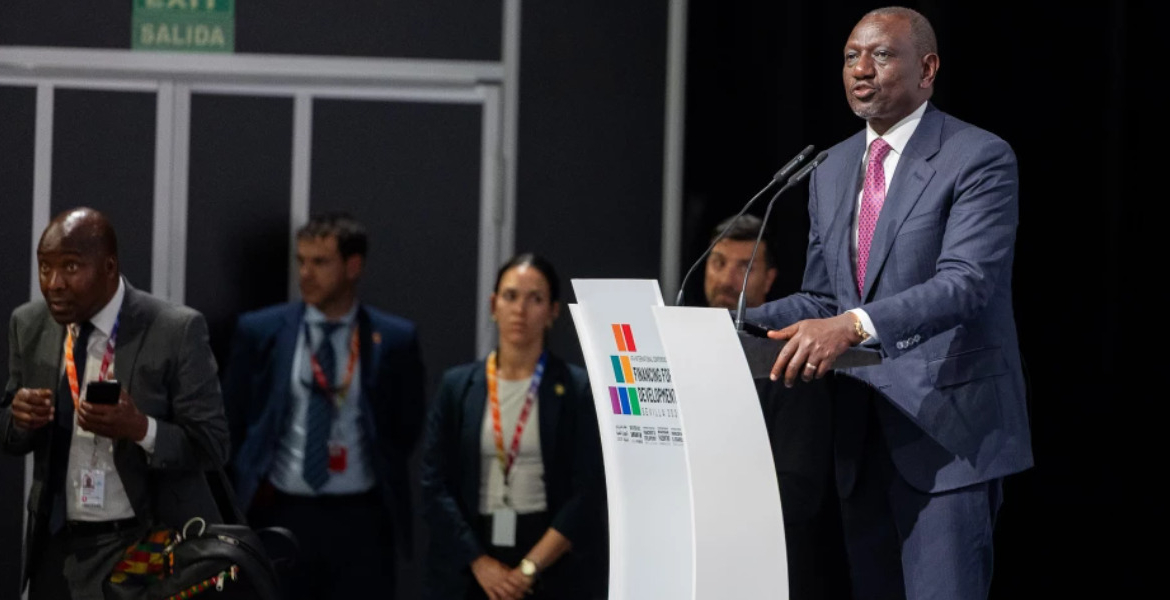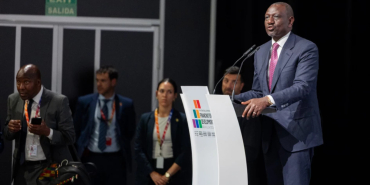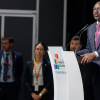Ruto Tells Kenyans in the UK to Avoid Job Hunting on Student and Tourist Visas

President William Ruto's official visit to the United Kingdom on 2 July 2025 culminated in the signing of the Kenya-UK Strategic Partnership 2025-2030.
The agreement, witnessed by UK Prime Minister Sir Keir Starmer at 10 Downing Street, commits up to £1.5 billion (KSh 266 billion) in UK-backed investments, aimed at doubling bilateral trade by 2030, and addressing strategic cooperation between both countries. Ruto's agenda centred around formalising labour migration, promoting green industrialisation, and attracting international investment.
A cornerstone of the visit was the unveiling of the National Policy on Labour Migration, designed to regulate and formalise the employment of Kenyans abroad. During a Diaspora Town Hall in London, Ruto criticised the prevalent use of student and tourist visas for securing foreign employment, denouncing it as a route to exploitation and legal vulnerability.
"No Kenyan who is going to work outside is going to travel using a student visa or a tourist visa," Ruto said, emphasising the need for proper documentation to ensure the dignity and protection of migrant workers.
The policy represents a departure from informal migration patterns that have historically left Kenyans vulnerable to low wages, restricted labour rights, and immigration penalties. By institutionalising overseas employment through bilateral agreements and pre-departure training, the government seeks to increase transparency, track migrant welfare, and combat human trafficking. This shift aligns with Kenya's broader strategy to leverage its human capital as a strategic export, particularly in sectors such as healthcare, hospitality, and construction.
Ruto's remarks come against the backdrop of surging diaspora remittances, which reached a record KSh 638 billion in 2024, surpassing earnings from traditional exports like tea and tourism, and positioning the diaspora as Kenya's leading source of foreign exchange. Acknowledging this contribution, Ruto pledged continued support for Kenyans abroad and urged them to act as brand ambassadors for the nation.
"We need to have a record so that if they are in distress or doing odd jobs that have indignity, we can help them," he said.
Beyond labour migration, Ruto's itinerary highlighted Kenya's commitment to green growth and climate resilience. In meetings with the Tony Blair Institute and other stakeholders, Ruto reiterated his administration's goal of decarbonising the manufacturing sector and expanding renewable energy capacity. Kenya, he argued, is uniquely positioned to become a hub for low-carbon products, given its existing reliance on geothermal, wind, and solar power.
"We can be the destination for green energy. And with green energy, you end up with green products," he noted.
The Kenya-UK Strategic Partnership, a five-year bilateral framework, is anchored on four pillars: trade and investment, security and defence, sustainable development, and climate cooperation. It includes provisions for digital skills training, green financing, and enhanced collaboration on artificial intelligence and emerging technologies. The partnership is expected to unlock significant opportunities for Kenya's innovation ecosystem, including support for over 500 start-ups and the creation of 30,000 digital jobs.
Reinforcing Nairobi's status as a regional financial hub, Lloyd's of London has decided to establish a regional underwriting centre under the Nairobi International Financial Centre (NIFC), projected to manage up to €500 million in insurance assets. Ruto's engagements in London extended to high-level forums such as the Kenya Investment Forum, the LSE Africa Debate, and meetings with UK Export Finance and Bloomberg Media. These platforms showcased Kenya's investment potential, particularly in infrastructure, fintech, and clean energy.
He also visited King's Cross Station to gather insights for the Nairobi Railway City project, a flagship urban renewal initiative aimed at transforming the capital's central business district into a modern, transit-oriented hub. Concluding the visit, the Kenya Diaspora Forum saw Ruto interacting with Kenyan professionals, entrepreneurs, and students residing in the UK.
"Speak well of your country. This is our home. God placed us here deliberately," he urged attendees.
However, the visit was not without scrutiny. Some critics, including a US-based academic, questioned the timing of the UK's invitation, citing recent unrest and allegations of police brutality in Kenya. The UK government responded that the partnership is grounded in mutual economic and climate interests, and that engagement remains essential for regional stability and global cooperation.
Ruto's UK visit signals a recalibration of Kenya's foreign policy, prioritising structured labour migration, green industrialisation, and strategic partnerships.








Add new comment